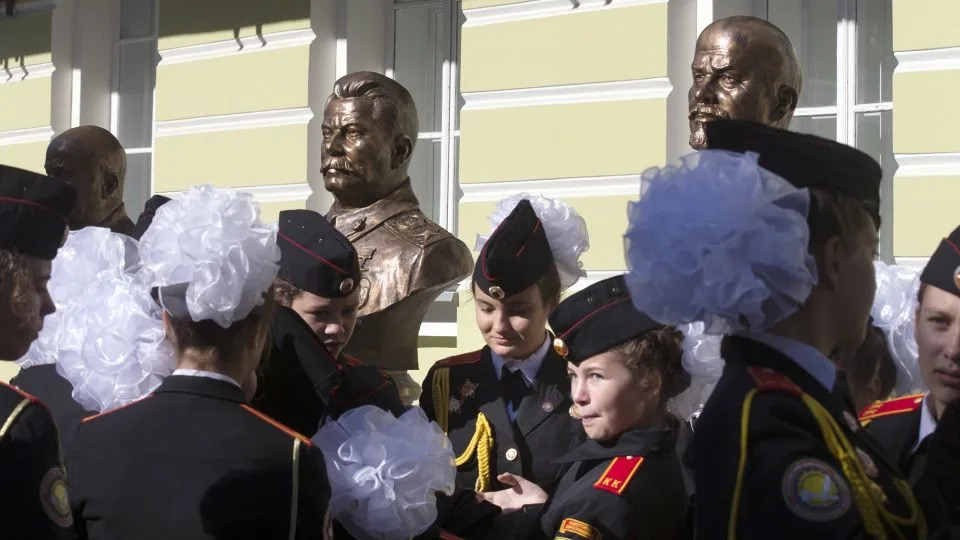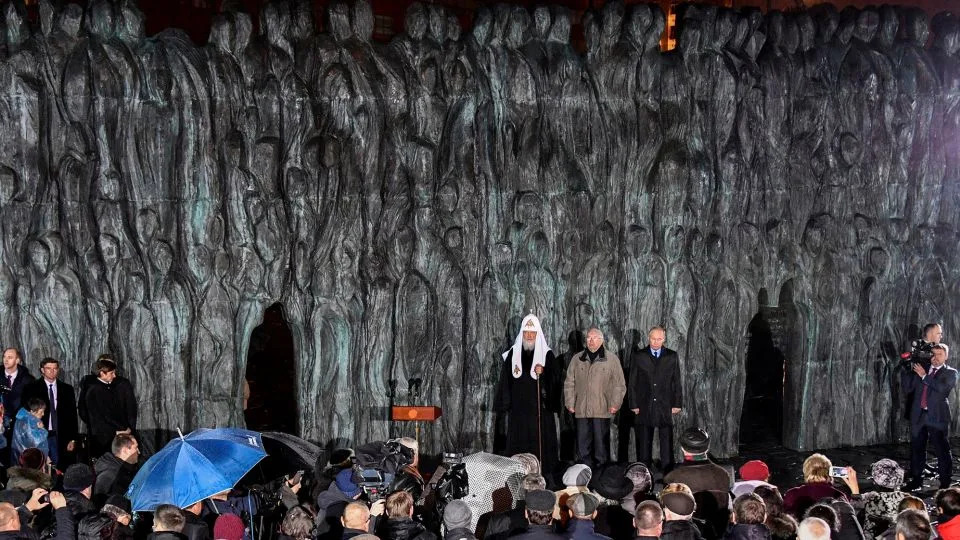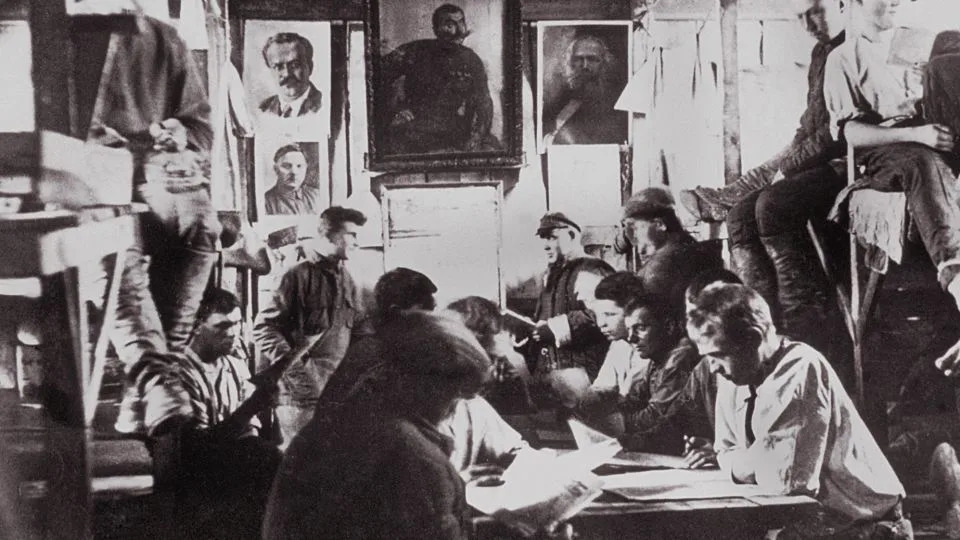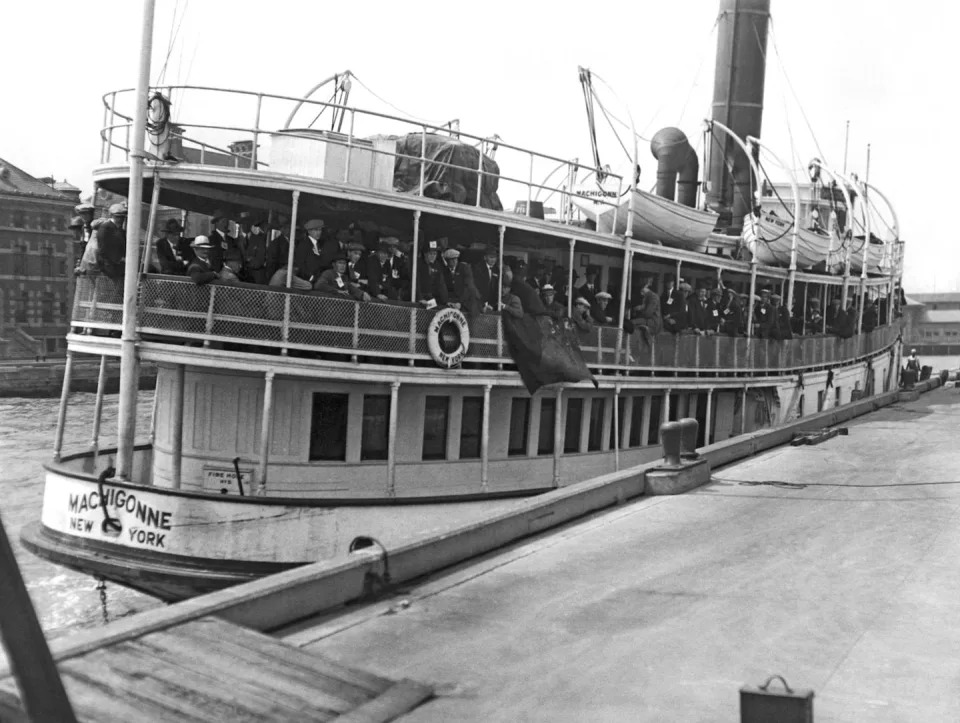CNN – Opinion
Opinion: What the West gets wrong on Stalin and Putin
Opinion by Jade McGlynn – January 20, 2024
Editor’s Note: Jade McGlynn is a non-resident senior associate at the Center for Strategic and International Studies and author of two books, “Russia’s War” and ”Memory Makers: The Politics of the Past in Putin’s Russia.” The views expressed in this commentary are her own. Read more CNN opinion here.
Last month, a new ‘Stalin Center’ was opened in Barnaul, Siberia. Its aim, like its predecessors’ in the Russian cities of Penza and Bor, is to glorify the Communist dictator.

Alongside a marked increase in Stalin statues across Russia — more than 100 since 2012 — the Stalin centers appear to affirm a simplistic story: The Kremlin is rehabilitating the ‘Vozhd,’ or great leader.
But deeper inspection complicates the story. The first Stalin cultural center opened in 2016, in the western Russian city of Penza, with the support of local Communists — but not Russian President Vladimir Putin’s United Russia party.
The second such center, which opened in 2021 in Bor, also in the west of the country, was originally a private initiative by a local Communist businessman. It began with a statue of Stalin looming over the Volga River. The mayor of Bor even petitioned for its removal, albeit unsuccessfully.
And now the most recent center, in Barnaul. It was established by the Communists of Russia, a radical and marginal Stalinist party that is separate to the much larger pro-Kremlin Russian Communist Party.
In other words, these centers, like many of the new Stalin monuments, are not Kremlin-imposed but rather grassroots or at least non-state initiatives. Perhaps this should not be surprising. According to the independent Levada Center, Stalin has taken first place in their ‘who is the greatest figure of all times and all people’ survey since 2012.

Putin’s pro- and anti-Stalin balancing act
Of course, this favorable view is not uncontested. The Russian human rights organization Memorial worked tirelessly for over 30 years to document Soviet crimes, which were widely discussed during the Gorbachev and post-Soviet era.
More recently, Russian journalist and YouTube star Yury Dud powerfully depicted the horrors and legacy of Stalinist Gulag forced labor camps in his 2019 documentary “Kolyma: Birthplace of Our Fear.” The YouTube video has over 29 million views.
Putin’s treatment of Stalin takes both of these stances into consideration. Rather than a glorification of the Communist dictator, he offers a somewhat equivocating view that strives to placate both pro- and anti-Stalin constituencies within Russian society.
To do so, he glosses over but does not deny the large scale of the Communist dictator’s terror and repressions. In 2017, Putin unveiled Russia’s first monument to the victims of Stalin’s repressions in Moscow: the “Wall of Grief.” During the opening, he asserted: “We must never again push society to the dangerous precipice of division.”

Over his 24 years in power, Putin’s rhetoric on Stalin has remained reasonably consistent. He does not deny Stalin’s crimes but rather tries to divert attention away from them, admitting the horror of the Gulag and mass repressions but insisting that the memory of these crimes should not overshadow Stalinism’s achievements. In his view, efforts to overly ‘demonize’ Stalin are part of an attack on Russia.
Silencing Stalin’s victims
While Putin has shown little enthusiasm for glorifying Stalin, his government has worked methodically to silence, or at least render abstract, the memory of the Gulag’s victims.
For example, the “Perm-36” memorial complex, Russia’s only remaining intact Gulag, was taken over by local authorities in 2015. When it reopened, individual stories of the prisoners’ lives were replaced by content celebrating the prison guards and the camp’s contribution to timber production during World War II.
Elsewhere, the 2021 shutdown of Memorial — which documented Soviet human rights abuses especially during the Great Terror — and the recent removal of ‘last address’ plaques marking victims sent to the Gulag, were almost certainly state-directed initiatives that seek to erase reminders of the human cost of Stalinist repressions.

However, their removal cannot be reduced to the question of Stalin’s legacy alone — it can also be seen as an attempt to eliminate evidence of the crimes of the security services, in which Putin’s career and power base are rooted.
After all, thinking about the individual victims leads to thinking about the individual perpetrators.
The Putinist regime
The erasure of personalized reminders of the Gulag and Terror must be contextualized within the Kremlin’s use of history and myth to legitimate the Putinist regime, Russia’s war on Ukraine, and the country’s great power status. As the prosecutor at Memorial’s liquidation trial in 2021 argued: “Memorial besmirches our history. It forces us — a generation of victors and the heirs of victors — to justify our history.”
The prosecutor’s comments reveal not an ignorance of the dark spots of history but a desire to ignore them. There are obvious parallels with the present day, when many Russians are trying hard to ignore the devastating war their country is waging on neighboring Ukraine.
Certainly, this is a more pertinent point of comparison than the notion that Putin’s regime in any way approximates Stalin’s. The estimated imprisonment of between 628 and 1,011 political prisoners in today’s Russia is a horrific reminder of the brutal authoritarianism with which the Kremlin rules. But to compare it to the millions worked to death in Siberian labor camps or executed in KGB basements is hyperbolic.
What the West gets wrong about Stalin and Putin
Moreover, these comparisons divert attention from important differences between the Stalin and Putin regimes. Beyond the drastically different scales of repression, the most obvious one is that Stalinism was a deeply mobilizing ideology that sought to remake man and undertook industrialisation with unprecedented scale and speed. That is abundantly not the case in Putin’s Russia, where the government instead encourages a ritualistic patriotism and political apathy.
Such conclusions point to intractable policy and security issues for the West. If Putin was in power solely thanks to the machinery of repressions, then it is not Russia that is a security threat, but his regime. In such a case, the problems posed by his regime would cease to exist when he does.
Likewise, if one argues that Putin is the only driving force behind Stalin’s rehabilitation, then one can also continue the fantasy that, if it weren’t for Putin, Russians would embrace Westernized liberal democracy and stop justifying the sacrifice of thousands of lives for the whims of the state.
These assumptions are flawed and lacking in nuance, no matter how comforting such a shallow understanding of Russian society might be.
The Western tendency to reduce mass-scale crime to an omnipotent leader has always been a misleading one. Even Stalinism was not the work of one man, but of the security services and individuals willing to denounce their fellow neighbors for housing rights or petty grievances, as the Kyiv-born Russian writer Mikhail Bulgakov so mercilessly satires in his short stories of the time.
Likewise, efforts to pretend that Putinism is just the work of one man will lead to myopic thinking and poor analytical predictions regarding Russia’s future. The question of Putin’s position on Stalinism suggests he is far from the all-powerful instigator of a Stalin cult and rather a manipulative manager of divergent, pro- and anti-Stalin societal attitudes, which he tries to balance and fuse into a workable and unifying national narrative.
That a notable section of Russian society exudes nostalgia for a leader who repressed millions illuminates pervasive and troubling issues that should inform predictions and planning for a post-Putin Russia.
The problem is not just one strongman — it is that so many people wanted a strongman in the first place.













